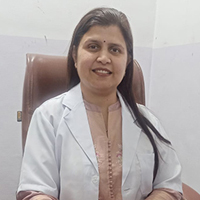Abortion in the later stages of pregnancy — particularly between 22 and 24 weeks — remains one of the most debated aspects of reproductive healthcare in India. While early abortions are fairly accessible under Indian law, terminations in the second trimester involve higher medical risks, legal scrutiny, and emotional sensitivity.
Recent legal reforms and court rulings have broadened the scope for such procedures, yet practical challenges and moral dilemmas persist. This article explores the medical aspects, legal boundaries, and ongoing challenges associated with second-trimester abortion in India.
Understanding Second-Trimester Abortions in India upto 24 weeks
The second trimester spans from the 13th to the 26th week of pregnancy. Abortions in this stage are usually more complicated, requiring hospital-based care and expert supervision.
Common Reasons for Abortions Between 22–24 Weeks
Abortions during this phase are typically not elective but result from serious circumstances such as:
- Severe fetal abnormalities detected during the Level-II or anomaly scan (18–22 weeks).
- Threats to the mother’s physical or mental health, including preeclampsia or psychological distress.
- Pregnancies resulting from sexual assault or contraceptive failure.
- Judicial permissions, when courts allow late-term abortions in exceptional cases.
In India, these late-term terminations are permitted only under strict legal and medical supervision.


Medical Procedures for 22–24 Week Abortions
At this stage, both medical and surgical methods may be considered, depending on the gestational age, health condition, and clinical setup.
1. Dilation and Evacuation (D&E)
A surgical method commonly used after 14–15 weeks. The cervix is carefully dilated, and fetal tissue is removed using suction and forceps. The procedure is usually performed under anesthesia and followed by ultrasound monitoring to ensure completeness.
2. Medical Induction
In certain cases, doctors may use a combination of Mifepristone and Misoprostol to induce uterine contractions and expel pregnancy tissue. However, medical abortions after 20 weeks are rare in India and must be closely supervised in a hospital setting due to higher risks of bleeding or incomplete expulsion.
3. Combined Method
Sometimes, a medically induced abortion is followed by surgical evacuation to ensure complete removal and prevent complications.
Potential Risks
- Heavy bleeding or hemorrhage
- Incomplete abortion requiring re-evacuation
- Uterine injury or infection
- Adverse anesthesia reactions
- Emotional or mental health distress
Nonetheless, when performed by trained professionals in licensed facilities, the risk of complications remains very low.
Legal Framework in India
The Medical Termination of Pregnancy (MTP) Act, 1971
The MTP Act, 1971, was India’s first formal abortion law. It permitted abortion up to 20 weeks of pregnancy for specific reasons such as risk to the woman’s life, fetal abnormalities, or pregnancies due to rape.
The MTP (Amendment) Act, 2021
The 2021 amendment to the Act expanded the gestational limit for certain categories of women:
- Survivors of rape or incest
- Minors
- Cases of fetal abnormalities detected later in pregnancy
- Women whose marital status changes during pregnancy (e.g., divorce or widowhood)
Under this law:
- Abortions up to 24 weeks are allowed for approved categories with the recommendation of two registered medical practitioners.
- Terminations beyond 24 weeks may only be permitted by a Medical Board in cases of substantial fetal abnormalities.
Judicial Interpretations
In several cases, Indian courts have allowed abortions beyond 20 weeks on humanitarian grounds.
For example, the Delhi High Court (2024) permitted a 22-week abortion due to mental health risks to the mother, emphasizing that reproductive autonomy includes the right to preserve a woman’s mental well-being.
These judgments reflect a gradual shift toward recognizing reproductive rights as fundamental rights under Article 21 of the Indian Constitution.
Worried About
Unwanted Pregnanacy
100% Safe, Legal & Painless In 15 Minutes
Delhi Govt. Approved Registered Centre Regn. No. DL/MTP/86/SED/2020


SAFE MTP with dignity
Comprehensive Package for MTP/Abortions:
- Painless Suction Procedure within 15 minutes for first Trimester.
- Medicine for 5 days.
- Follow up Ultrasound Scan.
- Seamless Transfer (Pick up & Drop from New Delhi International Airport).
- Safe Hospital Accommodation for patient & attendant.
- Soft Diet after procedure.


Contact Helpline No. 24x7:
+91-8800905938
Note: Abortion Available for Married/Unmarried Upto 24 Weeks.
About Dr. Rupali's Abortion Hospital
Dr. Rupali's Abortion Hospital, located in South Delhi, India, is a government-approved registered facility that provides safe and legal abortions up to 24 weeks. Dr. Rupali Mishra, a renowned Sonologist and Physician, is the founder and driving force behind our mission to offer safe & assured abortion services in India.
Welcoming International Patients
We extend a warm invitation to patients across the globe seeking for safe & legal abortion services. Patients from countries like Oman, UAE, Qatar, Kuwait, Saudi Arabia, and many other others have already availed our safe and ethical abortion services.
Abortion and Your Rights
In India, women have the legal right to terminate a pregnancy upto 24 weeks, making it a pioneer in protecting a woman's choice, life, dignity and body integrity. Dr. Ruapli's Abortion Hospital is behind the recent Landmark Judgement (X v. The Principal Secretary Health & Family Welfare Department & Anr. [2022 SCC Online SC 905]) by the Hon'ble Supreme Court of India on 29.02.2022, allowing unmarried or single women to terminate pregnancies upto 24 weeks.
Preparing for Your Abortion Journey
Once you've confirmed your appointment with us, we'll support you throughout the process. We assist with travel arrangements, documentation, pre-procedure dietary guidance, airport pick-up, safe accommodation near the hospital, empathetic counseling by experienced female doctors, admission and discharge processes, and transportation from the hotel to the hospital.


4000+
Google Reviews
4.9
ratings
1000+
Successful Procedures
Friendly And Dedicated Support in your decision
+91 8800905938 /+91 9911775222
Procedure Duration
The duration of the abortion procudure varies based on gestational weeks. For pregnancies less than 12 weeks, the process takes approximately 3 to 4 hours from admission to discharge. For Pregnancies between 12 to 24 weeks, the duration is typically 3 to 4 days from admission to discharge.
Ensuring Safey & Confidentiality
All abortions at Dr. Rupali's Abortion Hospital are conducted under Safe, sterile and hygienic conditions. We prioritize and maintain the highest levels of patient confidentiality in our exclusive women-centric hospital.
Seamless Transportation
Reaching us is convinient-simply arrive at the New Delhi International Airport and contact us at +91-9911775222. We'll take care of rest.
Our commitment to Your Safety and Care
Dr. Rupali's Abortion Hospital upholds the highest medical standards and protocols, ensuring your safety and well-being from admission to discharge.
Cost Transparency
The total cost of the abortion is determined by the gestational weeks and covers all aspects from admission to discharge. We believe in providing transparent and inclusive pricing.


Why Choose Dr. Rupali’s Abortion Hospital?
- Government-approved registered hospital for abortions up to 24 weeks
- 24x7 abortion services
- Exclusive women-centric abortion hsopital
- Expertise in second-trimester abortions (12 to 24 weeks)
- Ensured safety and legal Compliance
- Affordable, accesible and all-inclusive care
- Over 1000 safe procedures, backed by 4000+ reviews and 4.9 rating
- Privacy is highly prioritized
- Holistic care and treatment


Friendly And Dedicated Support in your decision
+91 8800905938 / +91 9911775222
Challenges and Real-World Barriers
1. Limited Access to Late-Term Services
Although the law now allows abortions up to 24 weeks in specific cases, very few hospitals — especially in rural regions — are equipped or authorized to perform them. Many private clinics avoid late-term abortions due to legal uncertainty.
2. Awareness and Stigma
Many women remain unaware that second-trimester abortions can be legal. Social stigma, fear of judgment, and misinformation often lead to dangerous delays or unsafe procedures.
3. Legal Ambiguity
While the MTP Act is progressive on paper, the absence of uniform state guidelines and delays in setting up medical boards often create confusion among healthcare providers.
4. Cost and Accessibility
Second-trimester abortions are more expensive than early procedures. In India, private hospital costs may range from ₹45,000 to ₹80,000, depending on the method and duration of stay.
5. Emotional and Psychological Impact
Women undergoing late-term abortion often experience anxiety, guilt, or grief. Access to post-procedure counseling remains limited in most facilities.
Ethical Considerations
Abortions between 22–24 weeks bring sensitive ethical debates:
- When does fetal viability begin?
- Should mental health be valued equally with physical health?
- How do we balance fetal rights with maternal autonomy?
Medical experts and legal scholars increasingly agree that a woman’s well-being — both physical and psychological — must remain the central focus of abortion care.
Improving Access and Safety
To ensure safe and legal access to second-trimester abortion, India must:
- Operationalize 24-week abortion guidelines in every state.
- Establish medical boards swiftly for cases beyond 24 weeks.
- Enhance medical training for gynecologists in late-term abortion care.
- Integrate mental health support into abortion counseling.
- Strengthen public hospital infrastructure to reduce cost barriers.
- Raise awareness about women’s reproductive rights under the MTP Act.
Abortion in India during 22–24 weeks remains a delicate balance between law, medicine, and human rights. While the 2021 MTP Amendment has extended hope for women facing late pregnancy complications, true progress depends on effective implementation, wider access, and continued public education.
Ultimately, reproductive freedom must mean more than legality — it should ensure that every woman, regardless of circumstance, has safe, confidential, and compassionate access to abortion care when she needs it most.









